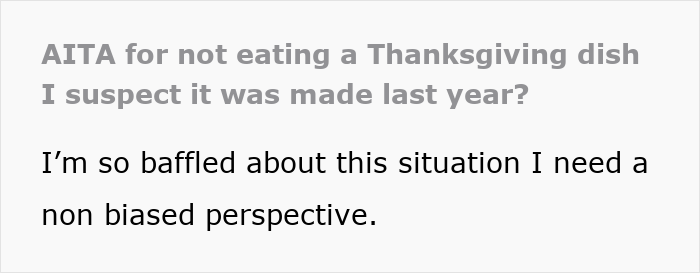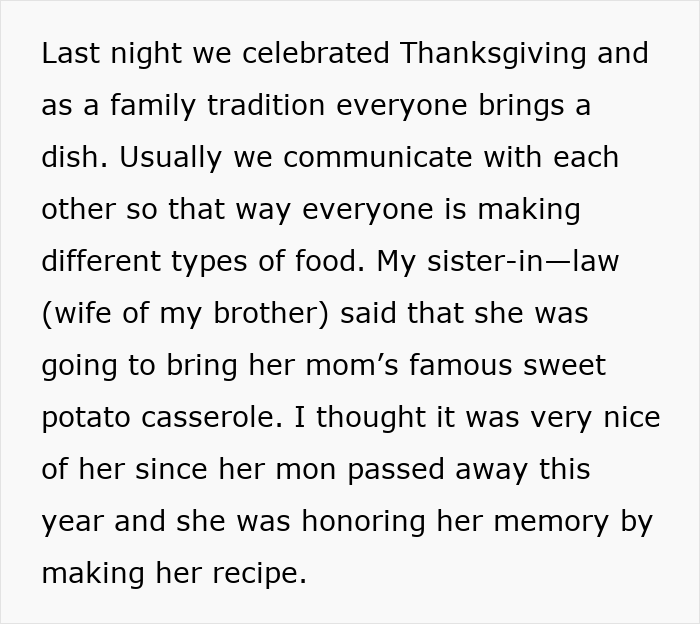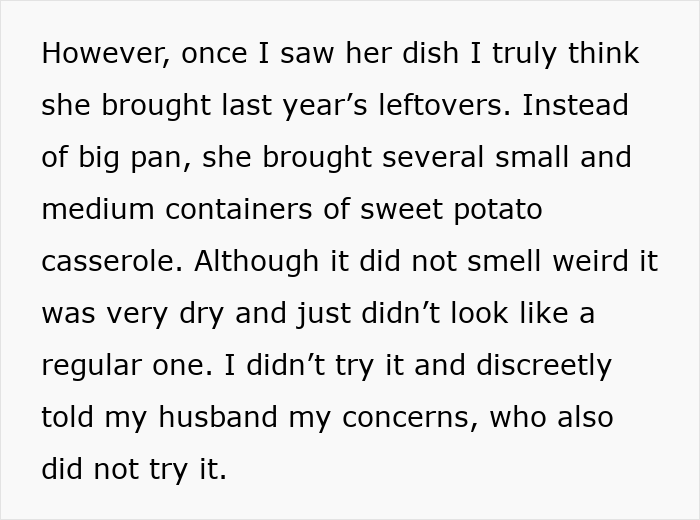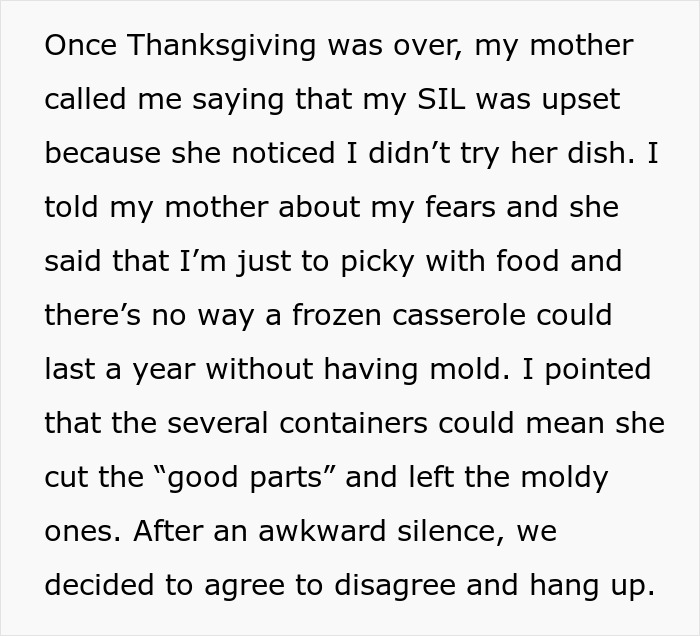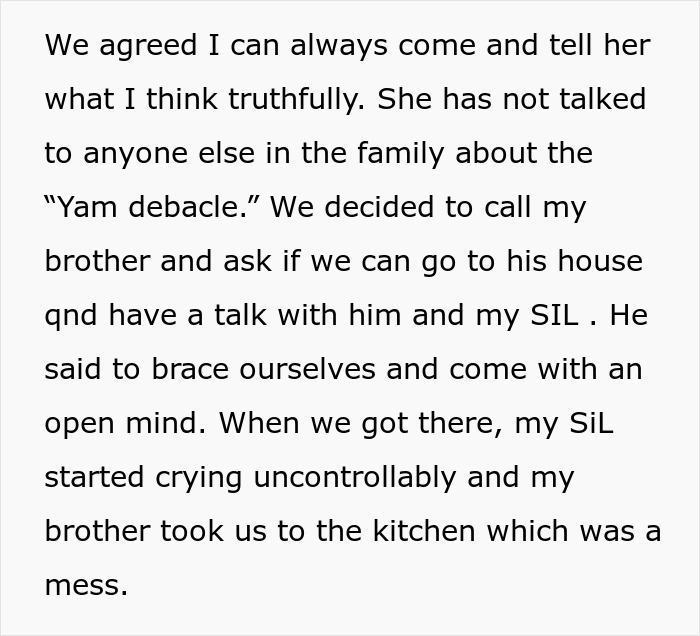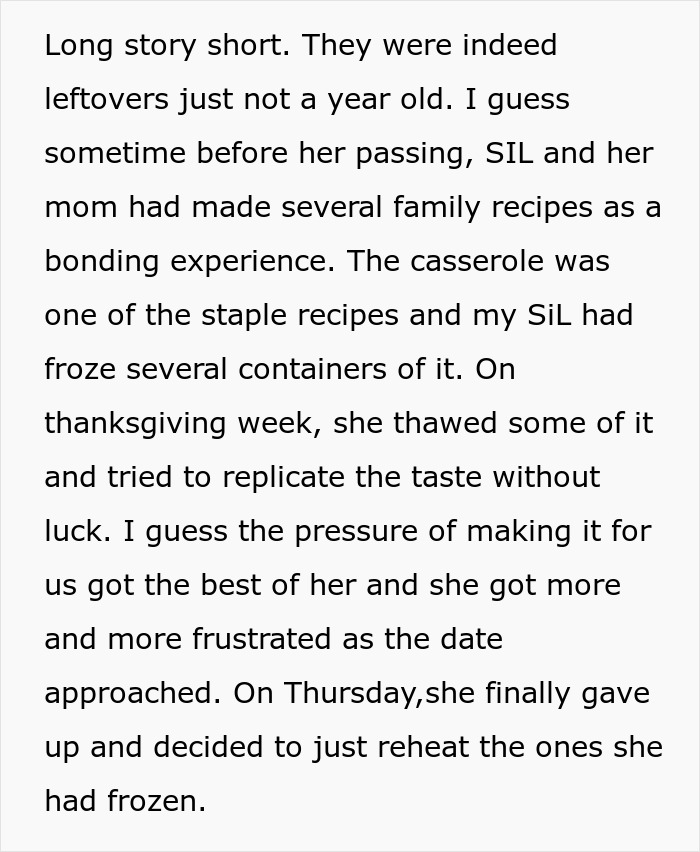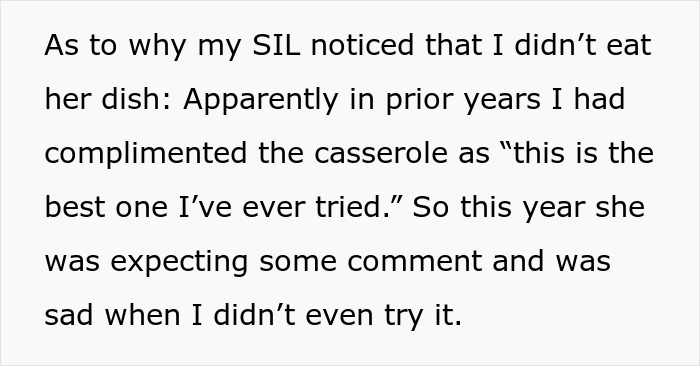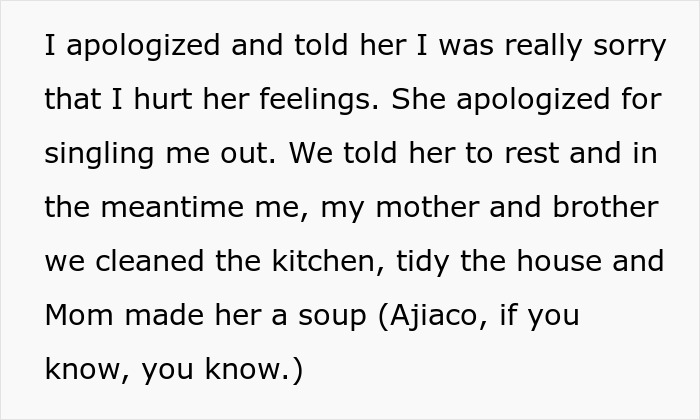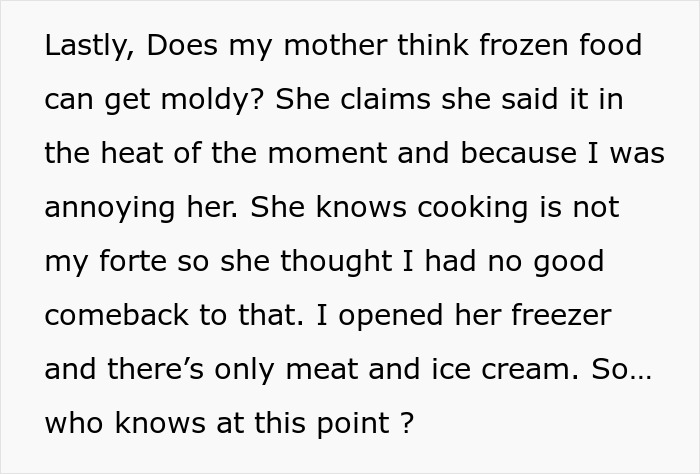[ad_1]
Apart from expressing gratitude, food is a huge part of Thanksgiving celebrations. Potluck dinners are happening everywhere, as people proudly share their recipes for everyone to try.
But as you may expect, this may cause some awkward moments, as this woman experienced. She refused to eat her sister-in-law’s sweet potato casserole after suspecting it was a leftover dish from the previous year.
Her actions caused a little rift within the family. Read the entire story below to find out how they handled it.
Food is a huge part of Thanksgiving celebrations and, sometimes, a cause for potential drama
Image credits: yakobchuk / freepik (not the actual photo)
A woman refused to eat her sister-in-law’s sweet potato casserole, causing a bit of drama
Image credits: sousvideguy / flickr (not the actual photo)
The author also argued with her mother, so she asked the internet if her actions were uncalled for
Image credits: TheUniMermaid
Unresolved pains are usually the cause of conflicts during family gatherings
Image credits: freepik (not the actual photo)
The sister-in-law’s mother passed away fairly recently, and the sweet potato casserole was a tribute. The author’s comments likely triggered her, compounding her grief.
Family therapist Vienna Pharaon says these “unresolved pains” can easily trigger arguments during a supposedly festive celebration like Thanksgiving dinner.
“All it takes is one look, one complaint, or that one comment to set off a conflict the family knows all too well,” Pharaon told CNBC in an interview.
Thanksgiving gets a bad rap for being a “dramatic” holiday, and for good reason. You’ve likely read our numerous stories on the topic. But why is that?
Licensed psychotherapist Dugyu Balan points to the “pseudo-celebrations” that happen during the latter part of the year. In her article for Psychology Today, she notes how it makes people engage in “forced gratitude” to capture picture-perfect moments for social media.
“The pressure to keep spirits high and smiles camera-ready can be overwhelming, often triggering anxiety and depression,” she wrote.
If tensions rise during dinner, experts like psychiatrist Dr. Nicole Washington say the best move is to keep your cool. If you notice yourself getting heated, lower your voice and speak calmly.
In an article for Newsweek, Dr. Washington points out that the other person may mirror your actions, which ultimately defuses tension. Or, in the story’s case, to nip it before things get heated up.
“It can be helpful to take a couple of steps back or to physically remove yourself from the person and take a few deep breaths,” she wrote.
Fortunately, the author didn’t have to deal with a full-blown family drama. While her actions were hurtful to her sister-in-law, she didn’t cause a scene that could’ve ruined everyone’s night.
The author provided more information in the comments
Some readers sided with her
While others criticized her for making wrongful assumptions
She later provided an update, saying she patched things up with her sister-in-law
Image credits: freepik (not the actual photo)
[ad_2]
Source link
























